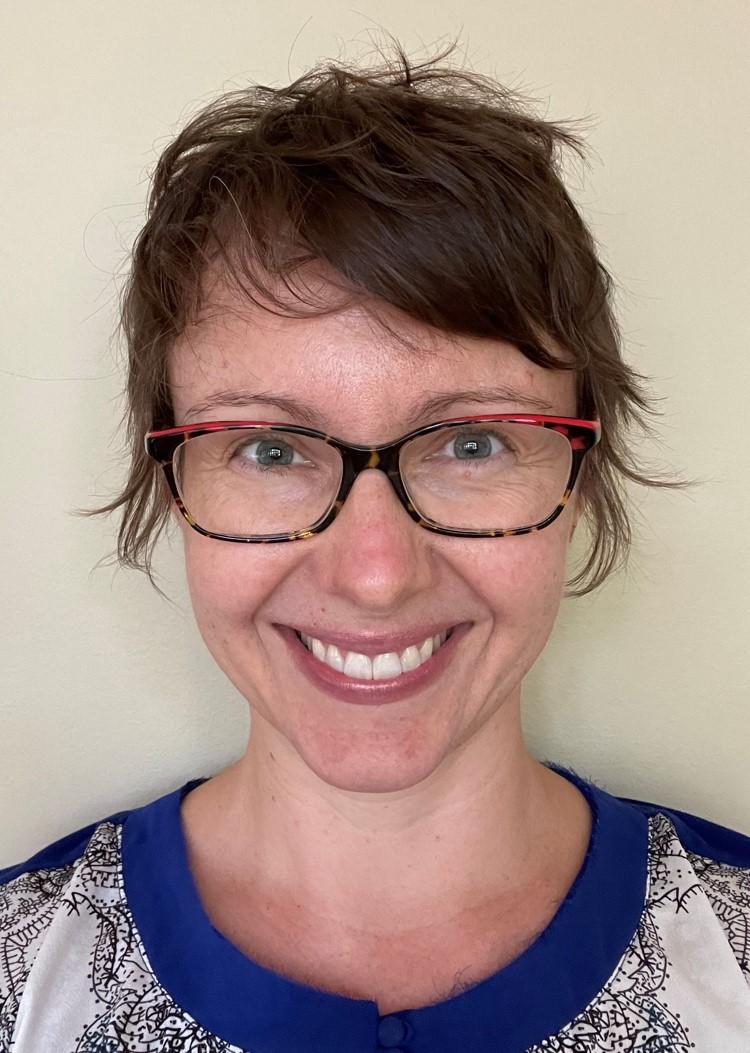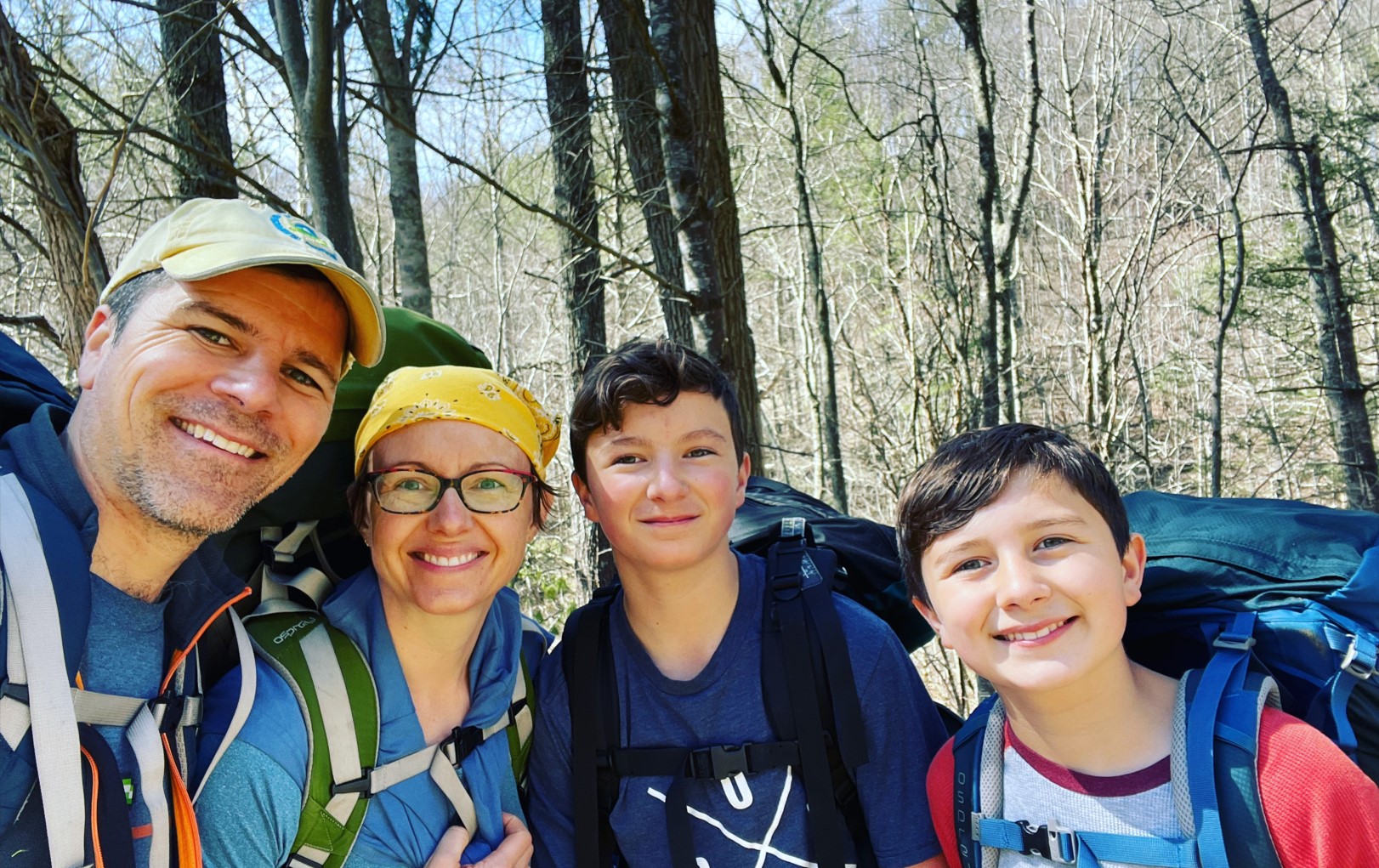
The consequences of Parkinson’s disease and other neurodegenerative movement disorders go beyond their physical symptoms. They also force people with these conditions, as well as their loved ones, to confront grief, anger, and a host of end-of-life concerns. Katherine Henderson, MDiv, the subject of this week’s Spotlight interview, recently joined our interdisciplinary Benchmark Clinic as a non-denominational chaplain to help Parkinson’s patients confront and work through these concerns. Henderson talks to us about why she made a mid-career pivot to become a chaplain and providing a compassionate, non-judgmental presence to DukeHealth patients. She also talks about how she spiritual care to patients of all religions and worldviews, finding meaning and trust in the people she works with, and enjoying time with her family and exploring the mountains of North Carolina when she’s not at Duke.
What are your current responsibilities as a chaplain at Duke? What does a typical workday look like for you?
I am currently serving as DukeHealth's first Senior Chaplain for Outpatient Spiritual Care. My primary clinical home is the Duke Outpatient Clinic, which offers adult primary care services to underserved communities in Durham. Since October 2022, we’ve also been piloting the extension of spiritual care to the interdisciplinary Benchmark Clinic at Morreene Rd, to help support patients and families living with Parkinson's disease. I work 28 hours per week between these two roles. My days consist of a flexible combination of in-person and virtual spiritual care visits, interspersed with emotional support rounds and group grief care for both staff and patients. I am also partnering with residents and attending physicians on three ongoing research efforts, including a narrative medicine project.
How and when did you decide to become a chaplain?
I made a mid-career pivot to train for chaplaincy after a decade-long career consulting and teaching in the field of urban planning and sustainable development. I was drawn to ministry as a way to integrate my interest in the inner life (heart / spirit) with my outward-facing commitment to foster positive change in our communities. My first chaplaincy internship at the Durham VA cemented my decision to pursue professional chaplaincy, and I haven’t looked back!
How does your work with patients living with movement disorders compare to those of other patients you work with at Duke? What kinds of services or support are you able to offer them?
Degenerative neurological diseases such as Parkinson’s force patients and families to confront their own finitude and limitations, which can generate profound feelings including grief, despair, anger and helplessness. Chaplains offer a compassionate, non-judgmental presence to accompany patients through this spiritual wilderness, tailoring interventions via spiritual assessment.
While the themes differ across patient populations, my general approach is consistent. I carefully follow the patient’s lead, creating a safe space for them to grieve, lament, and give thanks, as needed. I listen for symptoms of both spiritual distress and wholeness, validating and normalizing these experiences, and assessing / reinforcing a person's own spiritual resources and practices. I also regularly encourage (“bless”) the use of mental health resources as powerful tools for further support and healing.
What do you enjoy most about your work?
I am so honored every time someone chooses to share their story with me. I find great meaning and joy in the connection and trust offered in these encounters. And I am equally sustained by interdisciplinary relationships with colleagues, fellow travelers who seek to embody their compassion through their work.
What’s the hardest part of your job?
This work brings us into close contact with the particulars of human suffering, day in and day out. It is hard to witness all this suffering, and even harder to acknowledge our limits as healthcare providers—especially when we are also confronted with loss and crisis in our personal lives. I believe that we can do this meaningful work in a healthy way, but only if we share the burden with trusted colleagues and regularly attend to our own physical, emotional and spiritual health.
What’s one thing you wished more patients and staff at Duke knew about your work?
Sometimes I wish we were called “spiritual care providers” instead of “chaplains”—because all people have a spiritual orientation, which may be religious, secular, or some combination of the two. “Spirituality” includes purpose, meaning, and existential questions like “Why is this happening to me?” or “What did I do to deserve this?”, which are indicators of spiritual distress. So chaplains are specifically trained to help meet the spiritual care needs of patients, families, and staff, regardless of their particular belief system or worldview.
What other passions or hobbies do you have outside of the Department?
I enjoy adventuring in the NC mountains with my husband and two sons, who are currently in the 6th and 9th grades. We’re also in an inter-generational bluegrass band with some family friends; my kids and I sing, and our boys also play violin. I am an avid reader of literary fantasy and magic realism, and I also write poems and blessings inspired by the incredible resilience I witness as a healthcare chaplain.

Henderson shared this photo from a family backpacking trip taken last year.